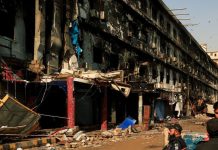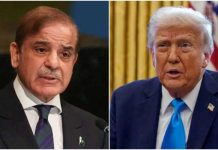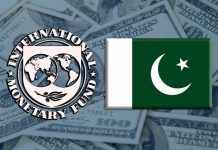
ISLAMABAD: Appearing uninterested in seeking judicial relief, Pakistan Peoples Party (PPP) co-chairman Asif Ali Zardari withdrew his bail applications in three cases, saying he knew why he was suffering and “does not want to embarrass anyone”.
He withdrew his applications seeking bail in Park Lane, Tosha Khana luxury vehicles and bulletproof vehicles references filed against him by the National Accountability Bureau (NAB).
PPP chairman Bilawal Bhutto-Zardari, who reached the Islamabad High Court (IHC) from Parliament House to accompany his father, said that the latter had made the right decision. In the past the PPP had faced discrimination which still existed, he said, adding that the party would continue to fight.
An IHC division bench comprising Justice Aamer Farooq and Justice Mohsin Akhtar Kayani earlier this week allowed the under-custody Zardari to appear in person during the hearing of his bail application in the Park Lane case.
NAB had arrested Mr Zardari following dismissal of his pre-arrest bail application by the same bench earlier this month.
The IHC bench on June 10 dismissed the bail petition of Mr Zardari in the fake accounts case which has been transferred from a banking court of Karachi to an accountability court in Islamabad.
The NAB prosecution produced Mr Zardari in the IHC. When the court took up his case, Mr Zardari approached the rostrum. Justice Farooq told him that his lawyers were present to plead the case.
But the former president insisted on addressing the bench, saying that he knew that his counsel were able lawyers and he also had faith in the court, but he wanted to speak to the judges directly.
“I know who has framed cases against me and why I am standing before this court…I am ready to fight for democracy. I have seen many ups and downs in the past. Allah has given me courage and I am withdrawing my petitions since I don’t want to embarrass anyone,” Mr Zardari said.
As per prosecution, Park Lane case is being investigated under different sections of the National Accountability Ordinance 1999 and Anti-Money Laundering Act 2010 for his alleged involvement “in extending loan and its misappropriation by M/S Parthenon Private Limited, M/S Park Lane Estate Private Limited and others”.
The Tosha Khana case is related to “taking vehicles from Tosha Khana by Mr Asif Ali Zardari ex President of Pakistan and payment of import duty/taxes from fake bank accounts”.
The third case is about “purchase of [armoured] vehicles and payment of import duties through fake bank accounts”.
Mr Zardari claimed that the prosecution had fabricated false cases against him as he had been accused of establishing a private company which the law permitted him. He said that during investigation, he learnt that he had been implicated in the case for securing a loan for the company though there was no evidence against him of taking or even applying for the loan.
“The investigation team never confronted me with any document to substantiate the allegation,” Mr Zardari added.
In the past, he said, he was kept in jail for eight long years and when he was released, he was again sent behind bars in the “fake” BMW case.
Talking to media, Javed Wains, a counsel for Mr Zardari, said that his client was sure that the fate of his bail petitions in Park Lane, Tosha Khana and bulletproof vehicles cases would not be different from that of the bail application in the fake accounts case.
According to judicial official, the Supreme Court in the Avenfield and Tallat Ishaq cases has toughened the bail criteria and bail can only be awarded in extreme hardship cases.
The provincial high courts, however, have recently granted bail to accused persons facing accountability cases, including some high-profile politicians. In the IHC the accused persons facing NAB references related to Diplomatic Shuttle Service and Safa Gold Mall have been granted bail after the Supreme Court judgements.



